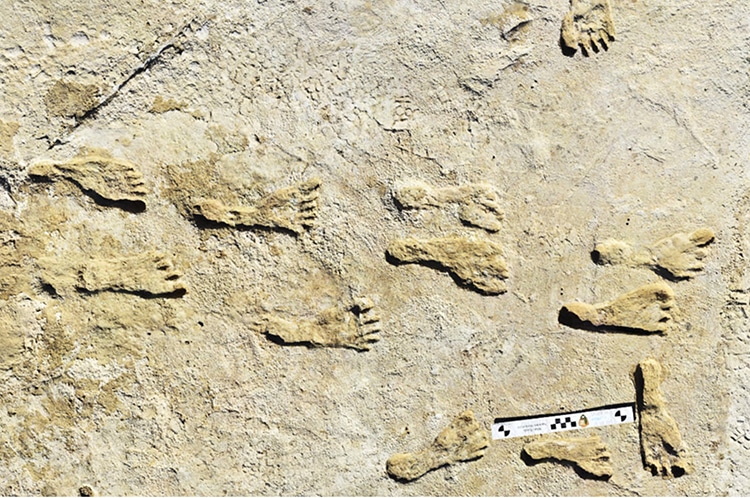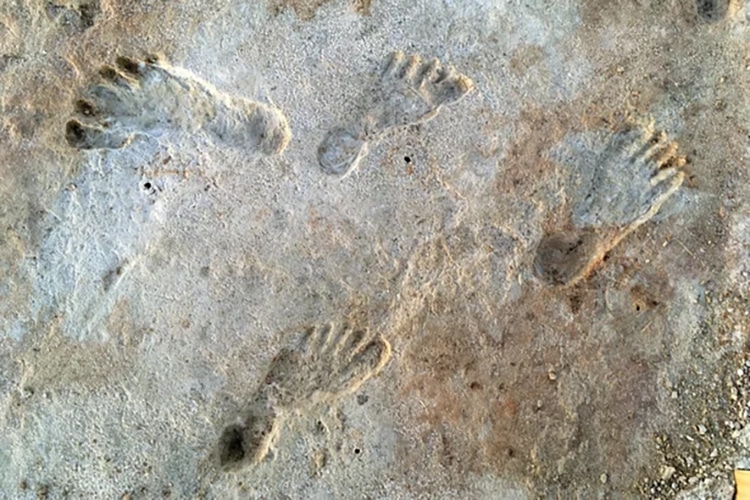Photo: National Park Service
The longstanding theory is that humans arrived in the Americas about16,000 years ago.
They migrated down the Pacific Coast aftercrossing the Bering Straiton a land bridge that once existed.
This puts into question when humans arrived in the Americas.

Photo: National Park Service
As footprints are not organic material, the scientists used seeds from a lake plant calledRuppia cirrhosa.
The seeds were found in the surrounding layers of sediment around the prints.
Testing of the seeds suggested a date range of about 23,000 to 21,000 years ago.

Photo: National Park Service
However, these initial findings caused some doubt among scientists, especially given its radical revision of known migrations.
The pollen would not have imbibed carbon because the trees grew on land.
Quartz grains were also collected and tested by optically stimulated luminescence (OSL) dating.
The results showed that these stone bits were last exposed to light 21,400 and 18,000 years ago.
Hopefully, further testing will bring more answers to light.